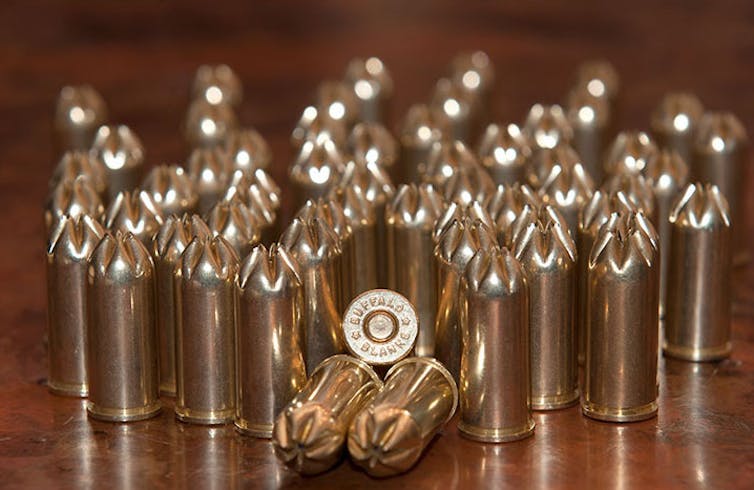
A prosecutor in New Mexico intends to charge Alec Baldwin with two counts of involuntary manslaughter it was announced on Jan. 19, 2023, over the deadly shooting on the set of the film “Rust” in 2021. The shooting occurred while Baldwin was rehearsing a scene with a gun that had been loaded with live ammunition instead of blanks. The prosecutor also intends to charge Hannah Gutierrez-Reed, the armorer responsible for overseeing the safety of firearms on the set, with two counts of involuntary manslaughter as well.
As a professor of law, my job is to understand the nuance of the U.S. legal system. Involuntary manslaughter occurs when a person unintentionally, but still unlawfully, kills another person. And a prosecutor will need to show the unlawful nature of either Baldwin’s or Gutierrez-Reed’s actions to get a conviction in this case.

A reckless or negligent accident
To convict someone of involuntary manslaughter, a prosecutor has to prove that the defendant acted either recklessly or with criminal negligence.
To prove someone acted recklessly, a prosecutor has to show that the defendant was aware of the risk they were creating with their actions – like a drunk driver crashing into a car and killing a baby and her parents. In contrast, the charge of criminal negligence is filed when a defendant is not aware of the risk, but a reasonable person in the position of the defendant would have been aware of the risk. For example, if someone rents out an apartment without smoke detectors and there is a fire that kills the occupants, the owner of the apartment could be charged with involuntary manslaughter.
The question for a potential jury is whether Baldwin was guilty of either reckless or criminally negligent actions that resulted in the death of Halyna Hutchins, the cinematographer on the “Rust” set.
The prosecutor is alleging that Baldwin had a duty to ensure that the gun and the ammunition he used were properly checked and that without doing that check himself, Baldwin should never have pointed the gun at anyone. Although that is what the prosecutor is claiming, a complicating factor is that there was another person, an on-set safety person responsible for the weapons and ammunition.
To convict Baldwin of manslaughter – assuming the case goes to trial – the prosecutor will have to convince a jury of two things. First, that Baldwin could not reasonably rely on Gutierrez-Reed to do her job and ensure that the gun did not have any live ammunition in it. And second, that Baldwin acted recklessly, or at least with criminal negligence, by not checking the gun and the ammunition himself before pointing the gun at the person he killed.![]()
Peter A. Joy, Washington University in St Louis
Peter A. Joy, Henry Hitchcock Professor of Law, School of Law, Washington University in St Louis
This article is republished from The Conversation under a Creative Commons license. Read the original article.
